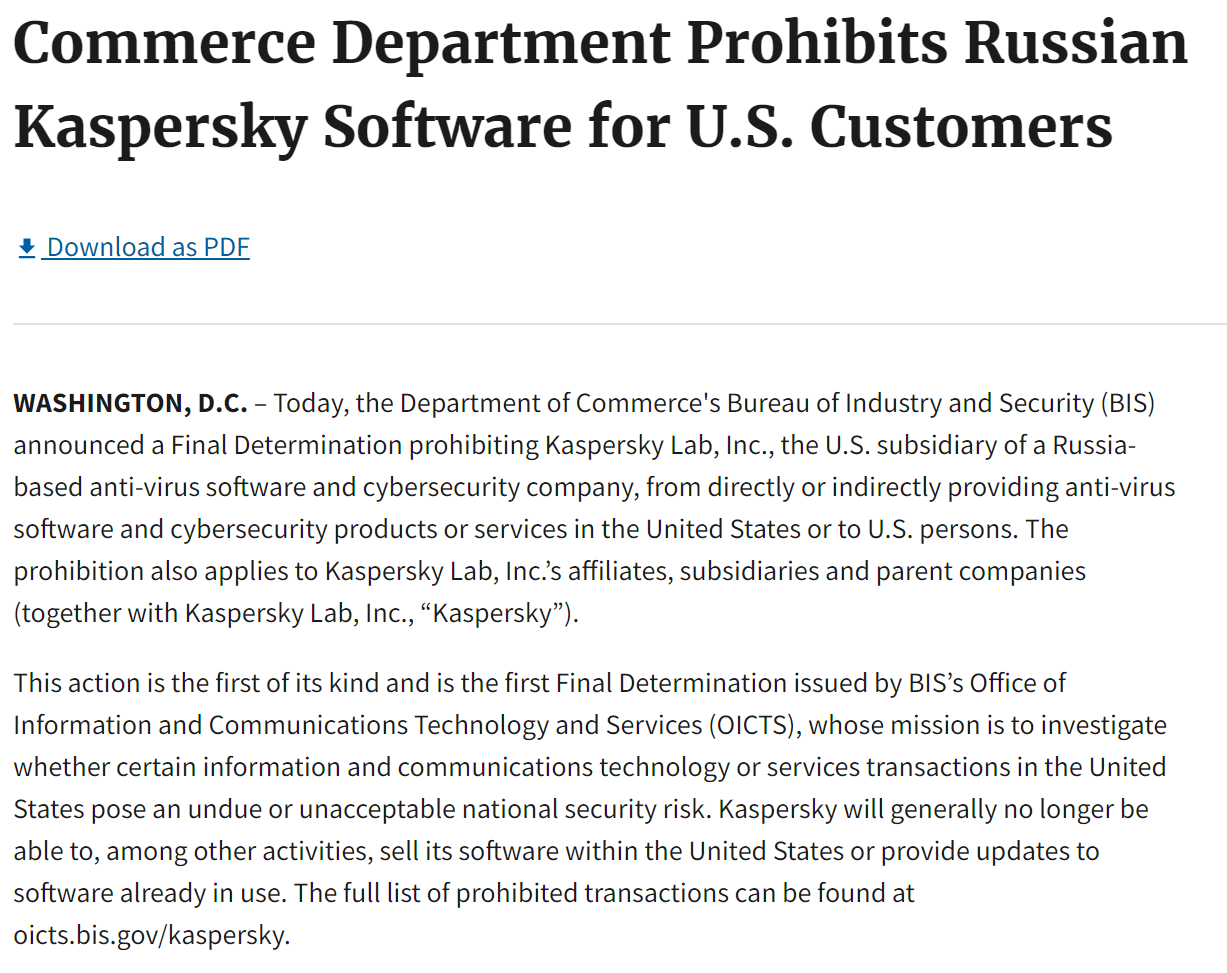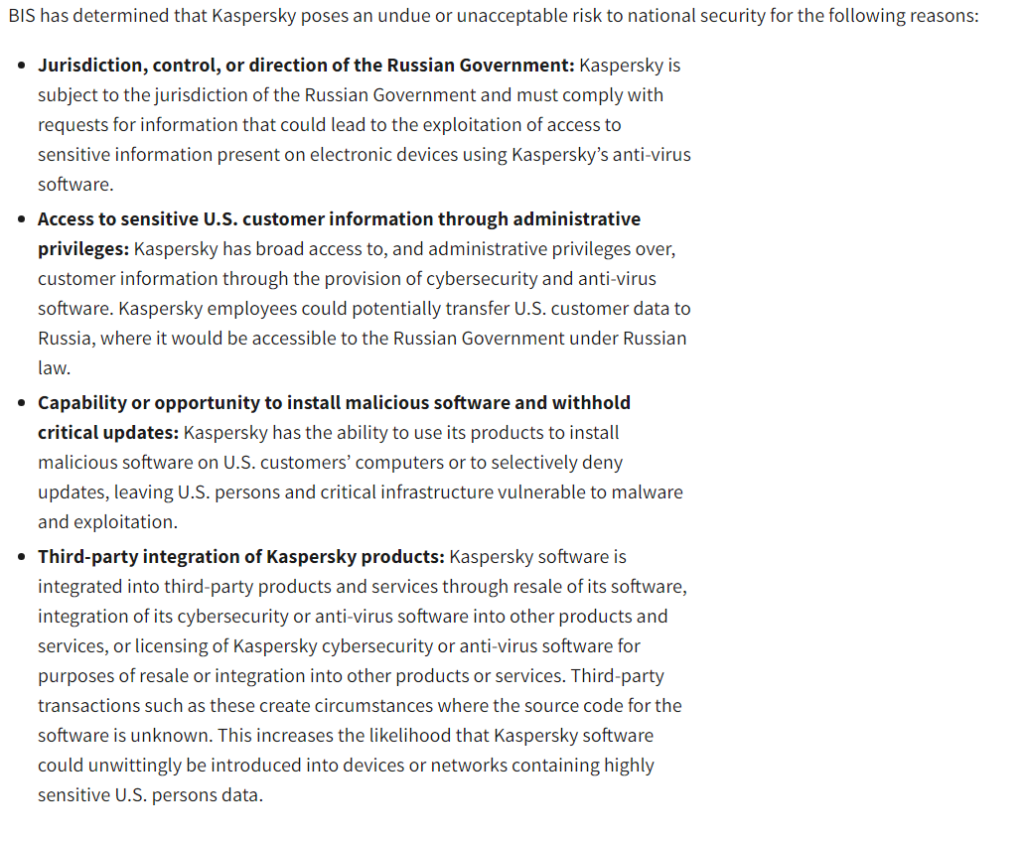Reasons Behind the Ban
The U.S. Department of Commerce issued a final determination prohibiting Kaspersky and its affiliates from engaging in any transactions within the U.S. This decision follows a thorough review by the Bureau of Industry and Security (BIS), which concluded that Kaspersky’s products pose “unacceptable risks to the United States’ national security and the security and safety of its people.” The primary concerns stem from the potential threats posed by the Russian Federation, Kaspersky’s country of origin.

According to BIS, the manipulation of Kaspersky software could lead to significant risks, including data theft, espionage, and system malfunction, which could compromise the country’s economic security and public health. The statement emphasized that the Russian government could exploit vulnerabilities in Kaspersky products, leveraging them for malicious purposes.

Timeline and Impact
The ban’s timeline is as follows:
- July 20: No new sales or agreements with U.S. persons.
- September 29: No new security software updates.
While Kaspersky can no longer sell or update its software in the U.S., certain services such as threat intelligence, training, and consulting are not affected.
In light of the ban, the BIS has provided guidance for consumers and businesses. They recommend seeking alternative antivirus protections to avoid exposure to online threats. For Windows PC users, uninstalling Kaspersky will revert the system to using Microsoft’s Defender as the default protection, which is deemed sufficient for most users.
Several alternatives, such as Avast, Bitdefender, and ESET, offer free versions for both desktop and mobile users. These alternatives are suggested for those looking to replace Kaspersky’s antivirus software before the September 29 deadline.
Kaspersky’s Response
Kaspersky, headquartered in Moscow and led by CEO Eugene Kaspersky, has denied any wrongdoing. The company argues that the decision is driven by geopolitical tensions rather than a fair assessment of their products. A spokesperson stated, “Kaspersky does not engage in activities which threaten U.S. national security and has made significant contributions to protecting U.S. interests.”
Concerns about Kaspersky’s ties to the Russian government date back to at least 2017, when the Department of Homeland Security banned its products from federal networks. The recent ban under the Biden administration reflects ongoing worries about Russia’s capability and intent to exploit cybersecurity firms for intelligence operations.
Commerce Secretary Gina Raimondo emphasized the necessity of the ban, citing Russia’s demonstrated capacity to weaponize personal information of Americans. She stated, “Given the Russian government’s continued offensive cyber capabilities and capacity to influence Kaspersky’s operations, we had to take the significant measure of a full prohibition.”
Future Implications For Software Freedom
The Biden administration’s ban on Kaspersky software underscores the critical importance of cybersecurity in safeguarding national interests. As users transition to alternative antivirus solutions, the emphasis remains on protecting personal and sensitive data from potential exploitation. This decisive action by the U.S. government highlights the ongoing need to address and mitigate cybersecurity risks posed by foreign adversaries.
By prioritizing national security and taking a proactive stance against potential threats, the U.S. aims to fortify its digital infrastructure against malicious actors and ensure the safety and privacy of its citizens.


